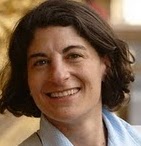Wendy Seltzer
 Wendy Seltzer is a lawyer and technologist. As Principal Identity Architect at Tucows, she helped to found the Global Acceptance Network for interoperable trust and identity recognition. She previously served as Strategy Lead and Counsel to the World Wide Web Consortium (W3C) at MIT,
improving the Web's security, availability, and interoperability through
standards. As a Fellow with Harvard's Berkman Klein Center for Internet &
Society, Wendy founded the Lumen Project (formerly Chilling Effects
Clearinghouse), the web's pioneering transparency report to measure the impact of legal takedown demands online. She seeks to improve technology policy in support of
user-driven innovation and secure communication.
She co-authored the second edition of Blown to Bits: Your Life, Liberty, and Happiness After the Digital Explosion.
Wendy Seltzer is a lawyer and technologist. As Principal Identity Architect at Tucows, she helped to found the Global Acceptance Network for interoperable trust and identity recognition. She previously served as Strategy Lead and Counsel to the World Wide Web Consortium (W3C) at MIT,
improving the Web's security, availability, and interoperability through
standards. As a Fellow with Harvard's Berkman Klein Center for Internet &
Society, Wendy founded the Lumen Project (formerly Chilling Effects
Clearinghouse), the web's pioneering transparency report to measure the impact of legal takedown demands online. She seeks to improve technology policy in support of
user-driven innovation and secure communication.
She co-authored the second edition of Blown to Bits: Your Life, Liberty, and Happiness After the Digital Explosion.
She serves on the
Advisory Board of Simply Secure; served on the founding boards of the
Tor Project and the Open Source Hardware Association, and on the boards
of ICANN and the World Wide Web Foundation.
Wendy has been researching openness in intellectual
property, innovation, privacy, and free expression online as a Fellow with Harvard's Berkman Klein Center for Internet & Society, Yale Law School's Information
Society Project, Princeton University's Center for Information Technology
Policy and the University of Colorado's
Silicon Flatirons
Center for Law, Technology, and Entrepreneurship in Boulder. She has taught Intellectual Property, Internet Law, Antitrust,
Copyright, and Information Privacy at American University Washington College
of Law, Northeastern Law School, and Brooklyn Law School and was a
Visiting Fellow with the Oxford
Internet Institute, teaching a joint course with the Said Business School, Media Strategies
for a Networked World.
Previously, she was a staff attorney with online civil liberties group
Electronic Frontier
Foundation, specializing in intellectual property and
First Amendment issues, and a litigator with Kramer Levin Naftalis &
Frankel.
Wendy
speaks and writes on copyright, trademark, patent, open source, privacy
and the public
interest online. She has an A.B. from Harvard College and J.D. from
Harvard Law School, and occasionally takes a break from legal code to
program (Perl and MythTV).
larger
photo
 Wendy Seltzer is a lawyer and technologist. As Principal Identity Architect at Tucows, she helped to found the Global Acceptance Network for interoperable trust and identity recognition. She previously served as Strategy Lead and Counsel to the World Wide Web Consortium (W3C) at MIT,
improving the Web's security, availability, and interoperability through
standards. As a Fellow with Harvard's Berkman Klein Center for Internet &
Society, Wendy founded the Lumen Project (formerly Chilling Effects
Clearinghouse), the web's pioneering transparency report to measure the impact of legal takedown demands online. She seeks to improve technology policy in support of
user-driven innovation and secure communication.
She co-authored the second edition of Blown to Bits: Your Life, Liberty, and Happiness After the Digital Explosion.
Wendy Seltzer is a lawyer and technologist. As Principal Identity Architect at Tucows, she helped to found the Global Acceptance Network for interoperable trust and identity recognition. She previously served as Strategy Lead and Counsel to the World Wide Web Consortium (W3C) at MIT,
improving the Web's security, availability, and interoperability through
standards. As a Fellow with Harvard's Berkman Klein Center for Internet &
Society, Wendy founded the Lumen Project (formerly Chilling Effects
Clearinghouse), the web's pioneering transparency report to measure the impact of legal takedown demands online. She seeks to improve technology policy in support of
user-driven innovation and secure communication.
She co-authored the second edition of Blown to Bits: Your Life, Liberty, and Happiness After the Digital Explosion.